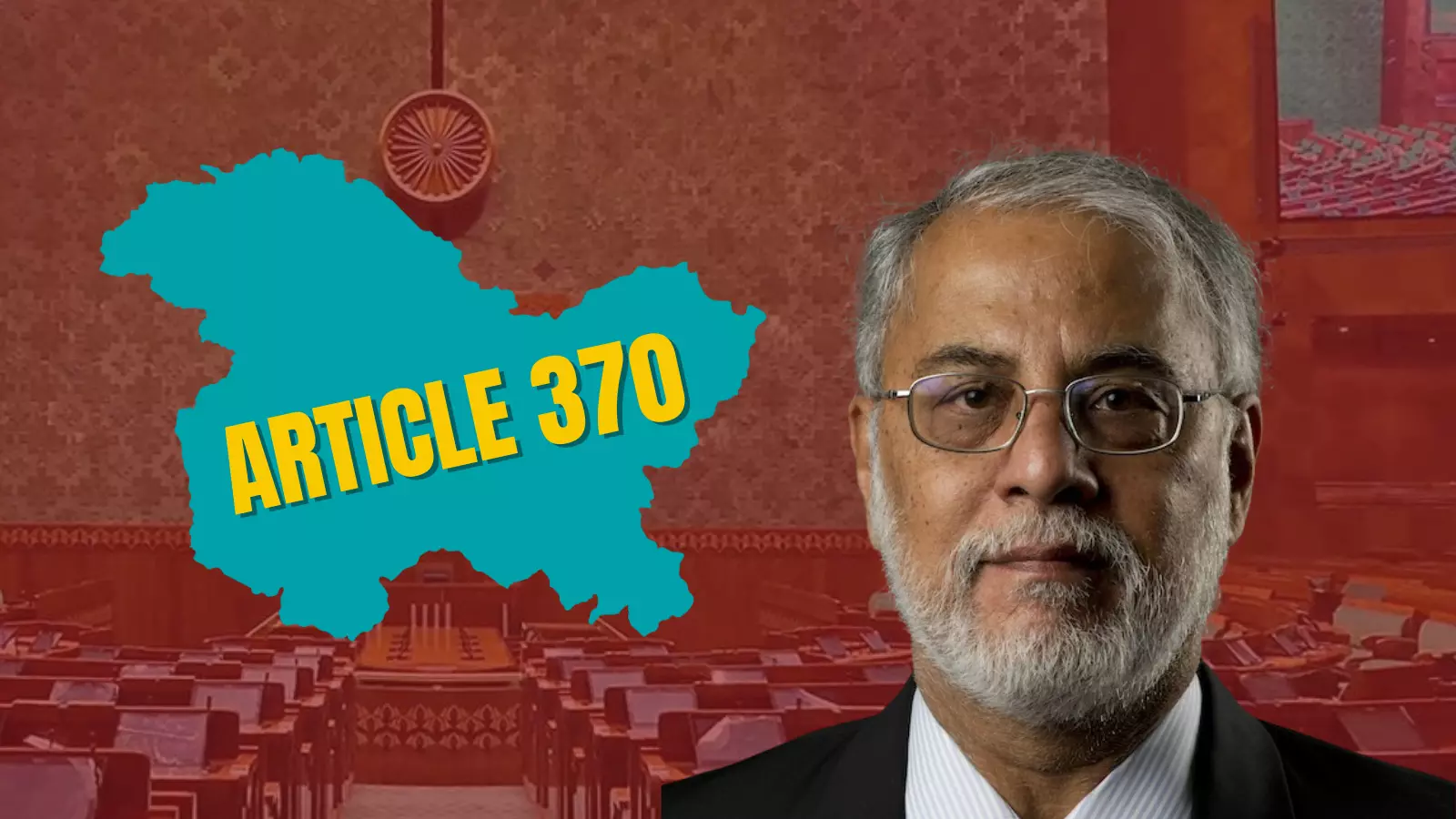
6 years after Article 370 abrogation, J-K yet to see durable peace Manoj Joshi
Defence and strategic affairs expert unpacks what has truly changed in Kashmir since the abrogation of Article 370—beyond headlines and official claims

Six years after Article 370 was scrapped, Jammu and Kashmir continues to remain on edge. While the government claims the region has seen development and peace, a series of recent attacks — including the Pahalgam massacre — raises concerns.
Defence expert Manoj Joshi breaks down the evolving terror tactics, Centre’s strategy, and what’s missing for long-term peace.
Has the abrogation of Article 370 delivered on its promise of ending terrorism and separatism in Kashmir, especially in light of the Pahalgam attack?
No, terrorism hasn’t ended. In fact, the Pahalgam attack was the worst civilian massacre since the 2008 Mumbai attacks. Though the frequency of incidents may have reduced, Pakistan continues to try and infiltrate. There are encounters reported almost daily. So, clearly, the promise of ending terrorism hasn’t been fulfilled.
Has the militancy landscape in Kashmir truly changed—or merely morphed into something else?
There has been a reduction in violence, no doubt. But if you examine the last two to three years, several attacks still bear the hallmarks of Pakistani involvement. These attacks aren’t just limited to the Valley—they’re happening across Jammu and Kashmir. After a popular government was elected, the attacks resumed. Pahalgam was the culmination of that phase.
Would you describe the current peace as stable and durable, or is it more a controlled calm under constant surveillance?
It’s not durable peace. Reducing militancy is one part, but achieving true peace requires a political settlement—and that hasn’t happened. Kashmiris are not happy with Article 370’s abrogation, nor with the state’s demotion to a Union Territory through a constitutionally dubious method. Unless there’s political reconciliation, stability will remain elusive.
Do you think it's time to restore Jammu and Kashmir’s statehood?
Statehood should never have been taken away in the first place. It’s best if it’s restored at the earliest. There are even rumours in Delhi that it may happen soon. That would be a good step forward.
Terror outfits like Lashkar-e-Taiba and Jaish-e-Mohammed dominated before 2019. Now we see lesser-known names like The Resistance Front. Has terrorism declined or merely gone low-cost and low-profile?
The names may have changed, but they’re still Pakistani proxies. The TRF, for instance, was recently sanctioned by the US and has direct links to Lashkar-e-Taiba. Pakistan changed these names during the FATF crackdown in 2018–19 to avoid sanctions, but the actors remain the same. It’s rebranding, not reform.
Given that, what value does diplomatic pressure—like placing Pakistan on the FATF grey list—really offer India?
No diplomatic tool offers instant results. However, a process like the FATF helps reduce violence over time. You can’t expect violence to stop overnight. No one in Pakistan even has the authority to make that happen. But continued global pressure is important.
Does Pakistan’s recent diplomatic outreach to countries like the US, Iran, and China alter India’s security calculus in Kashmir?
Yes, it does. Pakistan, being the president of the UN Security Council, currently adds a diplomatic cover for its actions. Its improving ties with Iran, China, and even the US help it navigate global pressure. But Pakistan also has major internal issues. Imran Khan is in jail, and domestic instability limits their options.
India, meanwhile, has kept pressure high. Operation Sindoor may be suspended, but it hasn’t been called off. Any major terror strike could trigger a response like Sindoor again. So while Pakistan gains diplomatic space, it’s constrained internally—and India must continue its pressure.
The Centre promised investment, jobs, and economic upliftment post-Article 370. Has Kashmir seen meaningful economic transformation on the ground?
Not really. No private investor will enter the Valley given the current situation. The government may spend money, and investment might go to Jammu—but not Kashmir. For real economic turnaround, you need peace. And peace needs both a military and political settlement. Without the latter, economic promises will remain on paper.
The content above has been transcribed from video using a fine-tuned AI model. To ensure accuracy, quality, and editorial integrity, we employ a Human-In-The-Loop (HITL) process. While AI assists in creating the initial draft, our experienced editorial team carefully reviews, edits, and refines the content before publication. At The Federal, we combine the efficiency of AI with the expertise of human editors to deliver reliable and insightful journalism.

